Featured image from France.
Matt Strohl
We are changing the format a little this year. My first year on Twitter has cured me of any urge to be negative, so instead of summing up everything I watched from 2021, I’m just going to focus on what I liked. I did pretty well seeing everything that I really wanted to see, although I didn’t get a chance to see either of the Hong movies (the rips circulating online are beneath my standards!), so those will be pushed to next year. The Woman Who Ran and Tsai’s Days I included last year. Anything that was released internationally during the last few years that I had no reasonable way to watch until this year was eligible.
25) The Voyeurs (Michael Mohan)
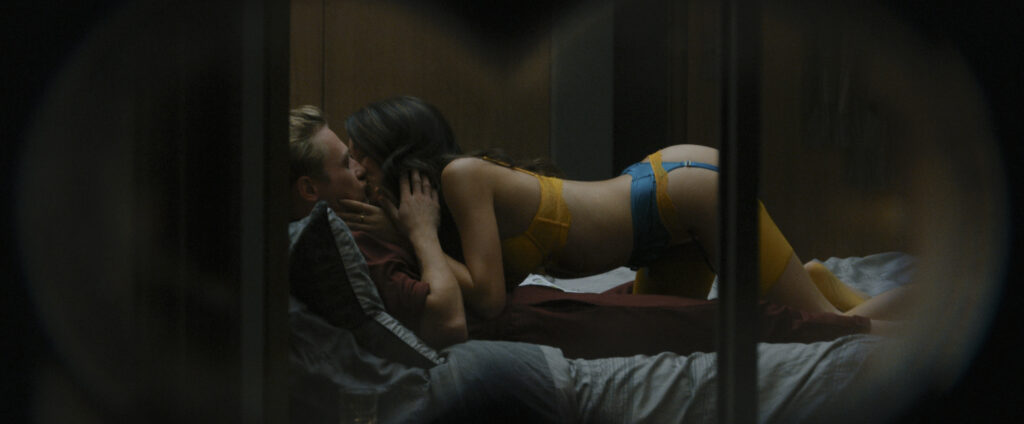
A glorious return to both the spirit and substance of the 90’s direct-to-video erotic thriller. The plotting is delectably ridiculous, and (unlike Netflix’s attempts at the genre) it doesn’t pull its punches.
24) The Last Duel (Ridley Scott)
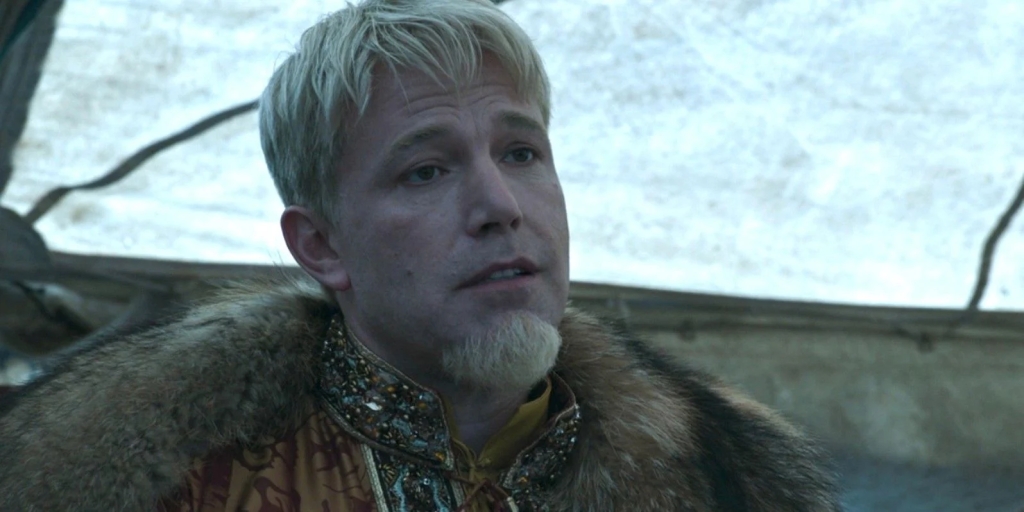
Confidently paced and very engaging. The cast is great and everyone is at their best. Damon playing against type is potent, but the tastiest bit is Ben Affleck doing Guy Pearce (circa The Count of Monte Cristo). In an era when most studio pictures are shot in front of green screens and weighed down with dramatic bloat and marketing for future franchise entries, it’s a pleasure to see a big budget movie with actual production design and brisk dramatic efficiency. This goes hard.
23) All Eyes Off Me (Hadas Ben Aroya)
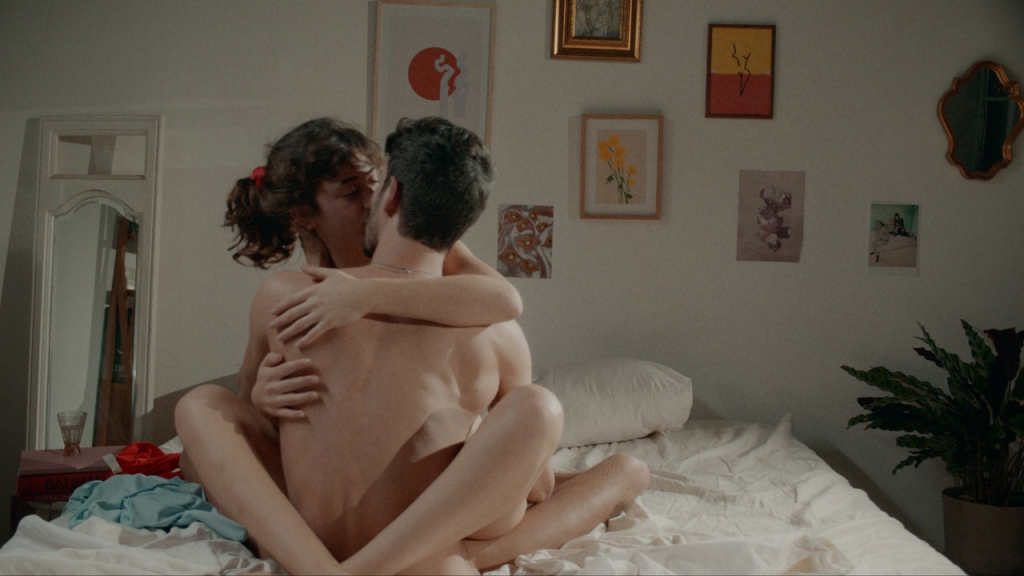
An elusive tryptic, structured almost like a ronde, but instead of the pairings of lovers coming full circle, we return to the existential restlessness we began with. As Mike Thorn put it, this is “cinema of questioning rather than declaration.” It doesn’t leave us with a pat commentary on millennial relationships, but rather an unsettling collection of moments that are likely to resonate differently for each of us.
22) Kriya (Sidharth Srinivasan)
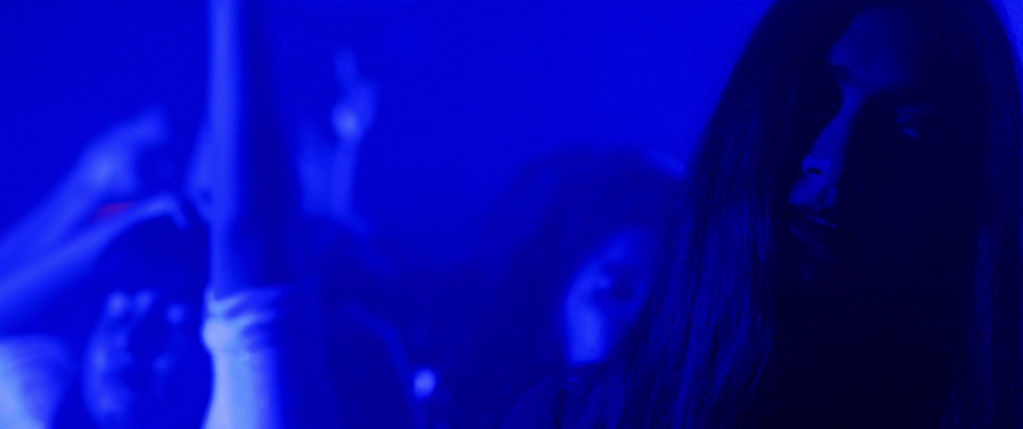
Dense and disorienting. Ancient magic, mysterious rituals, innovative sequencing of light and dark. It’s very refreshing to see a horror movie that both engages with the genre and does something challenging that I haven’t seen before. It’s the real deal.
21) New York Ninja (John Liu)
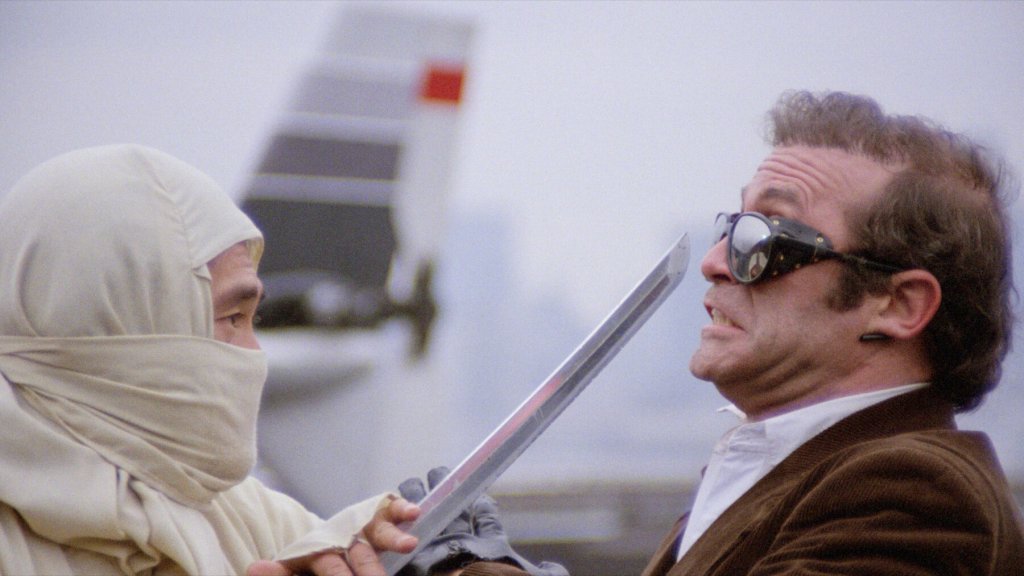
As a connoisseur of the ninja subgenre, I have to say bravo to Vinegar Syndrome for rescuing this. John Liu filmed it in 1984, but the production was abandoned and the film was not edited or released. Vinegar Syndrome saw the value of the materials and assembled it into a pretty darn coherent movie (the lingering incoherencies work just fine with the B movie trappings). All original audio was lost, so they had to record an entirely new audio track. This could have been a disaster, as it’s so easy for dubbing to come across as self-parody, but they did an *incredible* job casting beloved B movie actors. Don “The Dragon” Wilson is delightful in the lead, but it’s the great Michael Berryman who steals the show.
20) The French Dispatch (Wes Anderson)
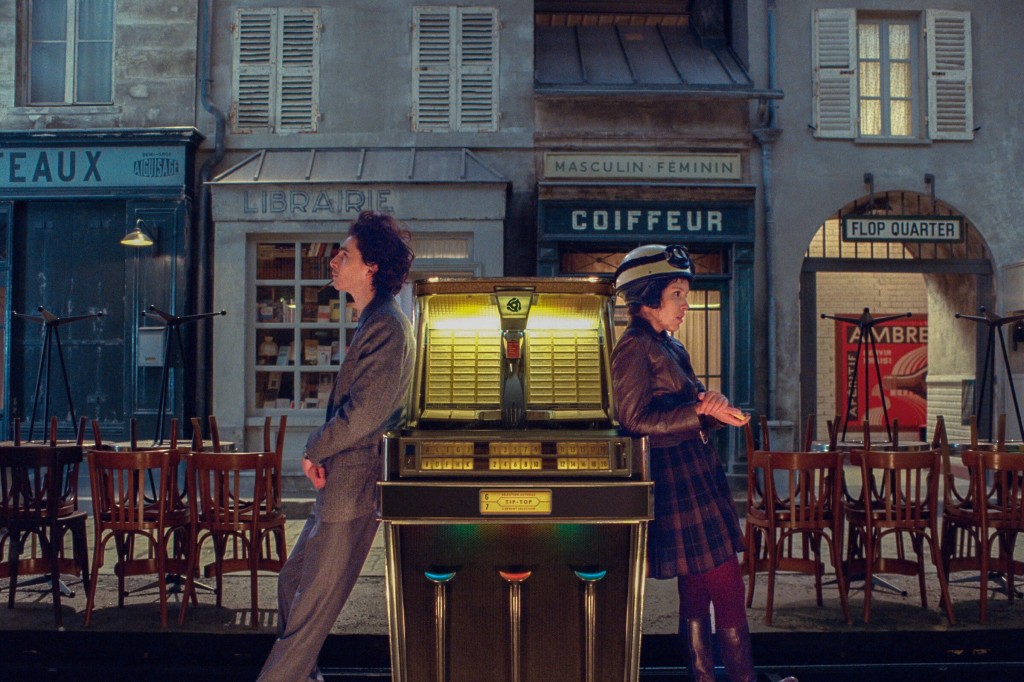
The further Wes Anderson pushes his idiosyncrasies, the more I like him. I don’t even really care about the subject matter here; this appeals to me plenty just taken as a gloriously uncompromised display of a singular point of view. My least favorite take is that only the first segment is good. It’s certainly the easiest to like, but it’s just an appetizer. The unapologetic density of the rest of the film is even more exciting.
19) The Swordsman (Jae-Hoon Choi)
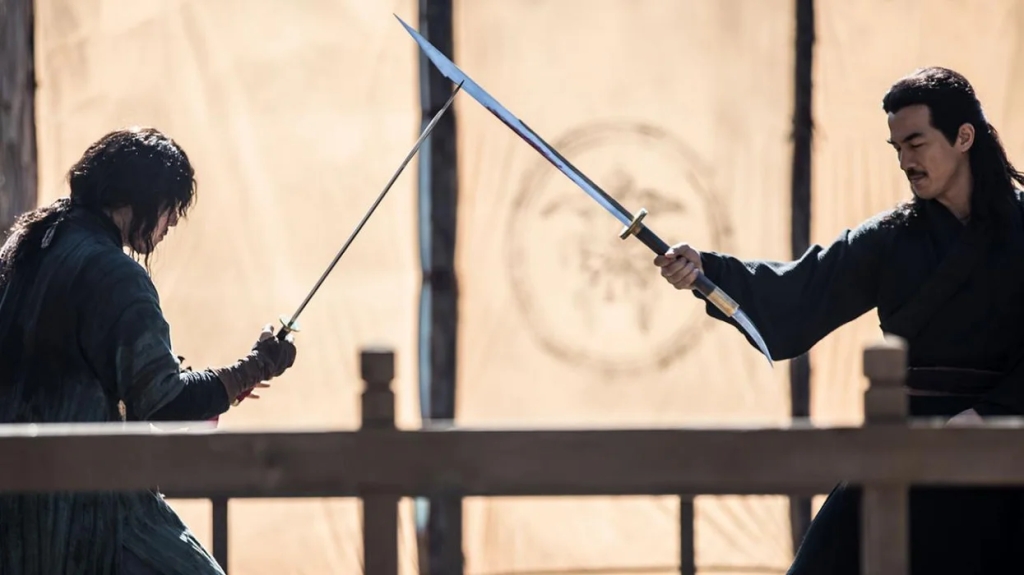
One of two movies I loved this year that combine aspects of Zatoichi and Taken. This is an eminently satisfying Korean swordplay movie with superb action.
18) Don’t Breathe 2 (Rodo Sayagues)
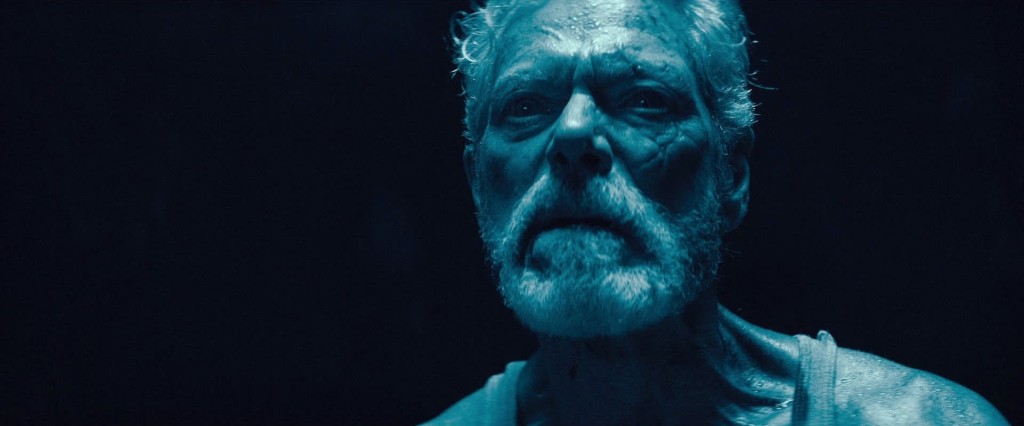
The other Zatoichi-Taken movie on my list. This lacks the graceful martial arts of The Swordsman, but it delivers buckets of unflinching nastiness. I am very excited by (producer and writer) Fede Álvarez’s work in recent years. The way you can tell that he makes real exploitation movies is that they genuinely piss people off. I would especially highlight Fiona O’Shaughnessy’s character acting. She turns in one of my favorite performances of the year (it’s certainly my favorite that I have not seen a single other person mention).
17) Wheel of Fortune and Fantasy (Ryusuke Hamaguchi)
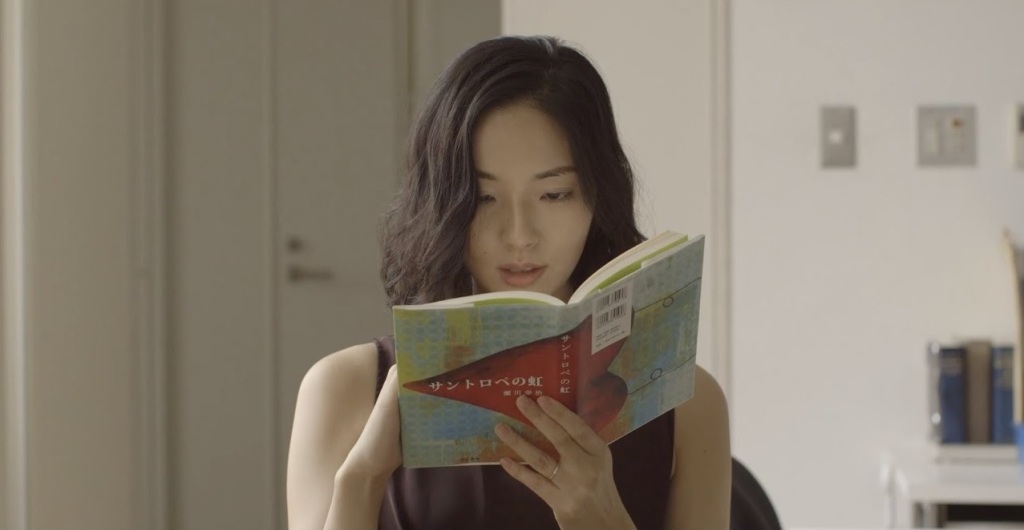
A riff on Rohmer’s Rendez-vous in Paris, this tryptic from Hamaguchi has an appealing balance between pointed oddness and searing poignancy. The three entries don’t neatly come together, and the tension between their affinity and incongruity makes the film more interesting than the sum of its parts.
16) Drive My Car (Ryusuke Hamaguchi)
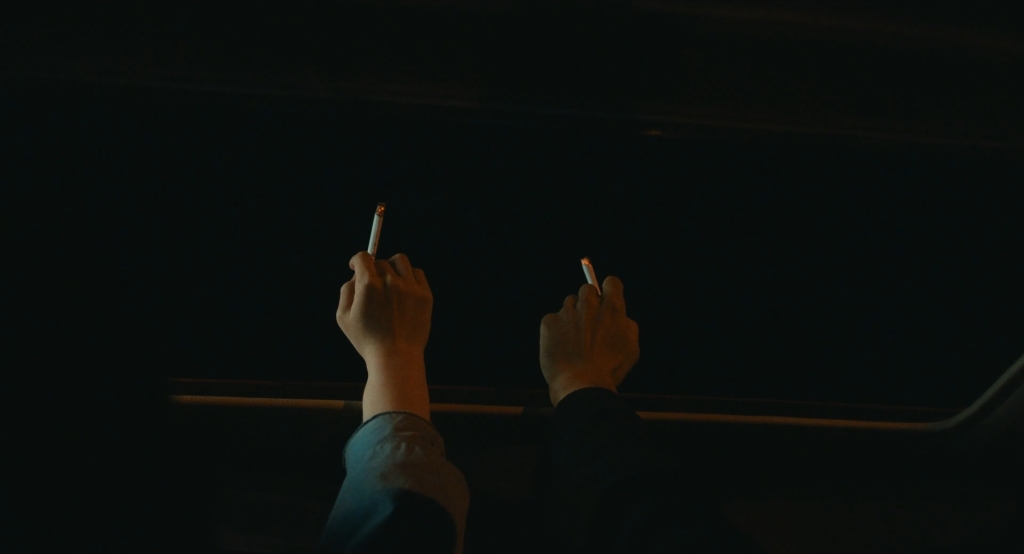
I have only seen it once, but I expect that future viewings (in tandem with a rereading of Uncle Vanya) will reveal further riches. I greatly admire the unflinching sincerity of this film, and also the way it lets so much depend on connections with Chekhov that require a patient literary sensibility to unravel. This is arguably the least hip movie to achieve widespread critical success in recent memory, and I’ll count that as a win for film culture.
15) French Exit (Azazel Jacobs)
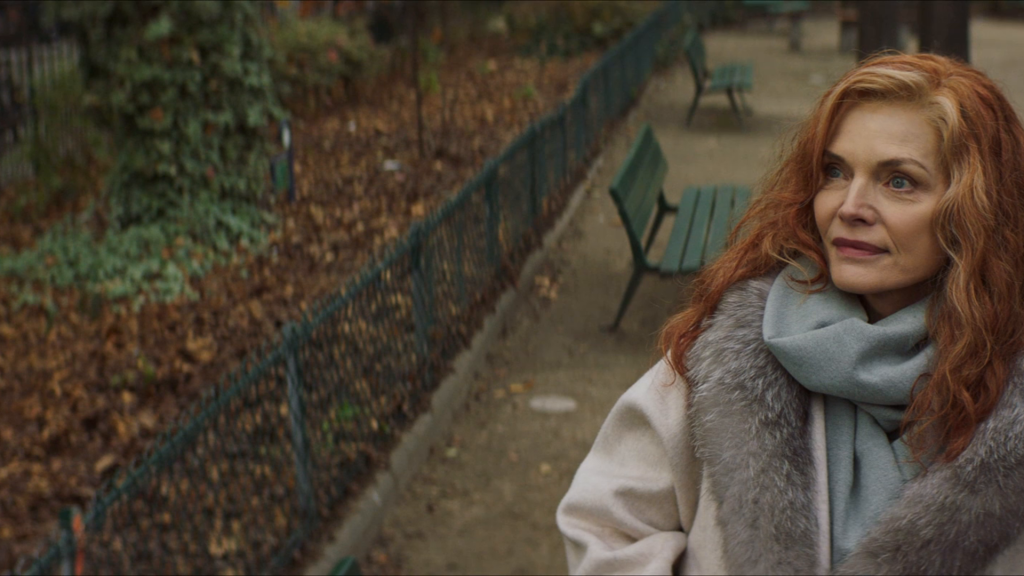
What can I say, I love French Exit. It’s bone dry and morbid. It appeals *immensely* to my own sense of humor, but I can imagine that it’s not for everyone. Michelle Pfieffer is god-tier. No one else could come close to doing this as well as she can. She’s approaching late Joan Crawford status here.
14) Parallel Mothers (Pedro Almodóvar)

Finished this with tears on my face. Almodóvar riles up our emotions with highly engaging melodrama and then seamlessly escalates to national identity and historical memory. The melodrama prompts us to ask questions about why lineage matters, and lets us dwell with a deception for a long time before revealing the broader implications of what the film is doing. Almodóvar’s courage in letting the tremendous images at the end stand on their own is incredibly refreshing in 2022. Great acting, smart writing, terrific score.
13) Wife of a Spy (Kiyoshi Kurosawa)
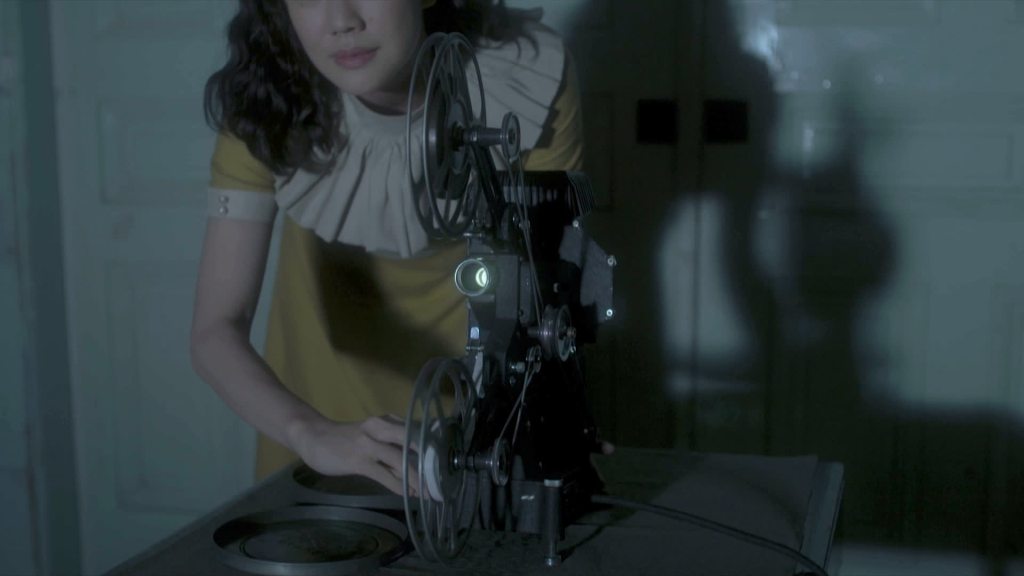
I don’t know if anyone else is capable of making something this elegant that slaps this hard. The way Kurosawa deploys horror tropes in far flung genres is fascinating as ever.
12) All Hands on Deck! (Guillaume Brac)
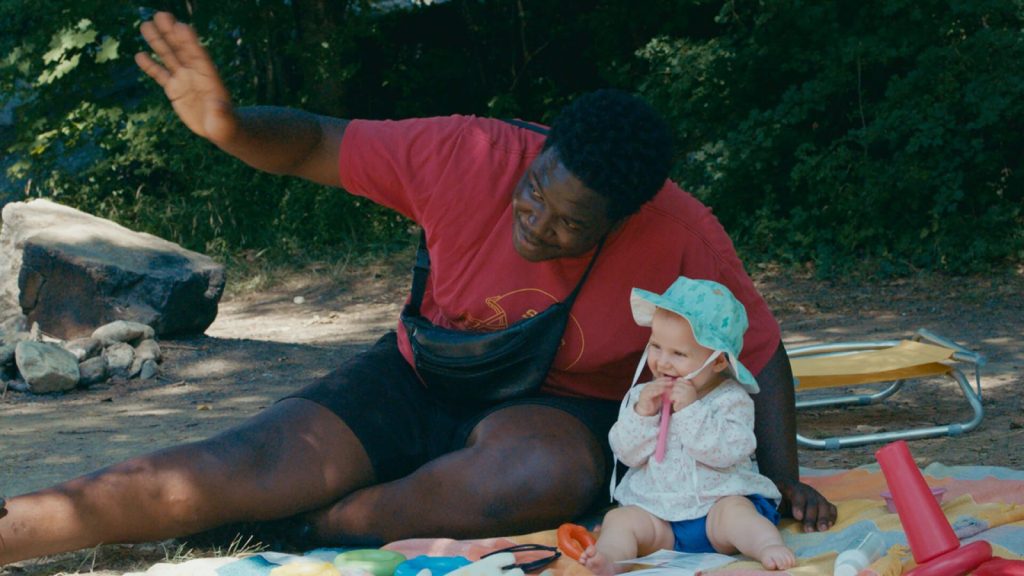
I saved this for the dead of Montana winter, and it was a delicious treat to be transported to summertime in France. This is such a readily lovable movie, with an endearing sense of romance and spontaneity. Truly a joy.
11) Annette (Leos Carax)
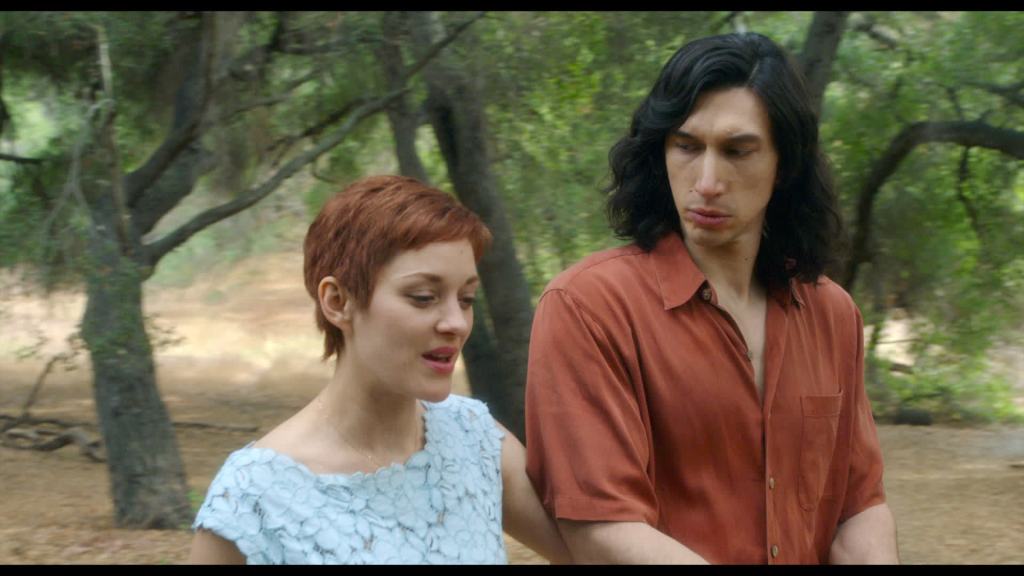
Leos Carax making an English-language movie for Amazon was a little concerning, but wow, what a result. It is certainly not artistically compromised. Indeed, what I most admire about this its sense of artistic liberty. The drama doesn’t quite grip me the way it grips many others, but I don’t even care about that, as I am just utterly exhilarated by its formal boldness and unfettered creativity.
10) Malignant (James Wan)
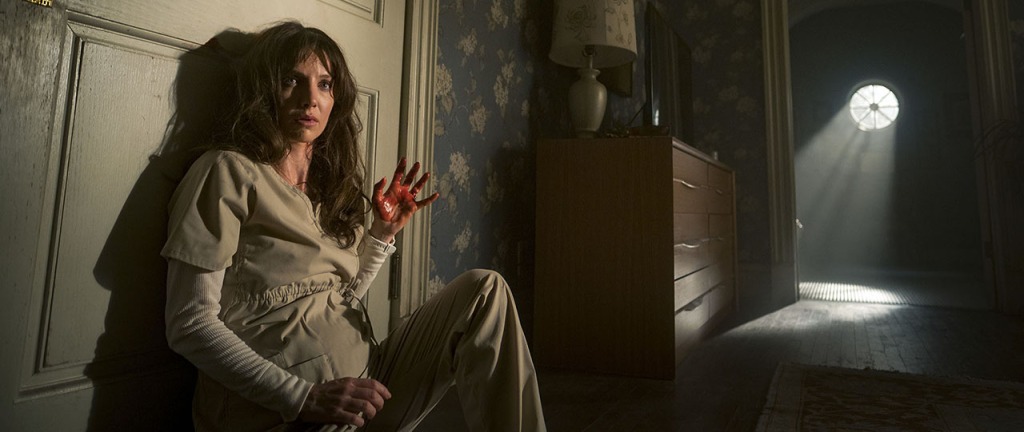
If you’ve heard grumpy horror fans like me complaining about the direction the genre has gone in the last 5-10 years and you’re wondering what we would prefer instead, this is the answer. I will probably watch this movie once a year for the next 20 years. Bravo!
9) France (Bruno Dumont)

This movie is widely referred to as a media satire, but I think that sells it far short. It’s doing something much more interesting than satirizing the media; it’s exploring the question of what “authenticity” even means at this stage of history, and examining the way that “real life” already involves elements of performance and performance is in turn a part of “real life.” Dumont’s absurdist humor is still here, albeit in a subtler form.
8) Hold Me Back (Akiko Ohku)

I had not seen any of Ohku’s films before this one, so credit to Filipe Furtado for pointing me to it by putting it high on his 2021 list (which I recommend taking a look at if you enjoy year end lists). I realized as I watched this that there are very, very few films that address (let alone take as their primary subject matter) the anxiety that can be present at the beginning of a relationship even when things are going as well as could be hoped for. The core conflict here emerges from the Proustian idea that transformational life changes constitute a sort of death, and that often we head into them with profound dread even when they are changes that we do in fact want for ourselves. Superb acting.
7) Wrath of Man (Guy Ritchie)
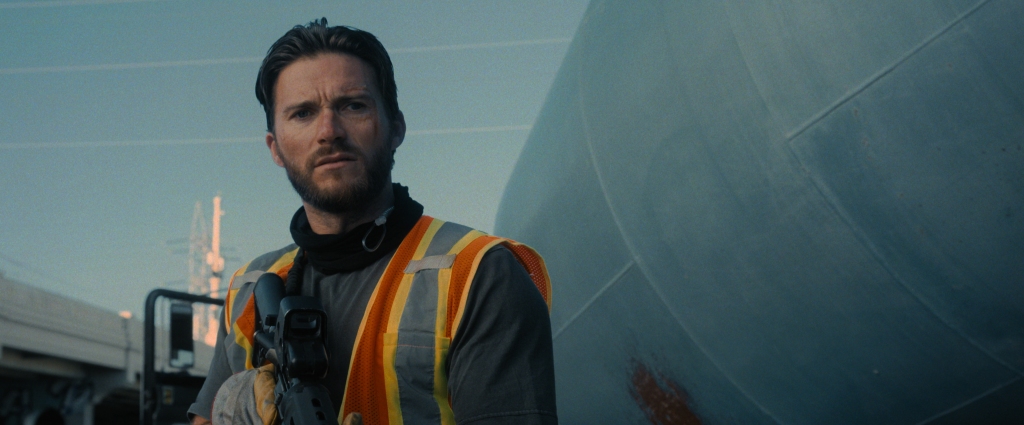
First let me say that I fully understand disliking Guy Ritchie. I have mildly disliked Guy Ritchie for most of my life. But I have to say, this one turned it around for me, and a second viewing confirmed my impression: I really love this. Since I first saw it, I went back and rewatched his entire filmography, and liked most of it a lot better. This is one of my favorite moments in cinephilia: changing my mind!
What I realized about Ritchie is that his primary genre is not crime, it’s screwball comedy of masculine embarrassment. Wrath of Man comes full circle and stretches what could have been such a comedy out into a pitch black slow burn revenge movie. Some complain that the plotting is strained, but that doesn’t bother me a bit: the lineage here is not Heat so much as Den of Thieves, Armored, and Julien Leclercq, and I appreciate the way this wears its B movie heart on its sleeve. The real interest of the script is the way it captures the absolute garbage that men (and women) say to each other in unrestrained macho contexts. Tough guy posturing and inevitable humiliation, this time played as tragedy.
Two other highlights I would emphasize are Christopher Benstead’s score, which is easily my favorite of the year, and Scott Eastwood, who is remarkably well-deployed. Scott just looks so much like his dad in this, and his repeated stare-downs with Statham are extremely effective at evoking the Eastwood iconography.
6) Zeros and Ones (Abel Ferrara)

I highly doubt there will be a better movie about the pandemic (which is not to say that that’s all this is about). Let me be clear that this is a challenging film and I don’t think it’s something that most people would like (so proceed at your own risk and don’t blame me if you hate it!), but its dark, underexposed visual style and elliptical narrative are (for me at least) perfectly suited to the subject matter.
5) Old (M. Night Shyamalan)
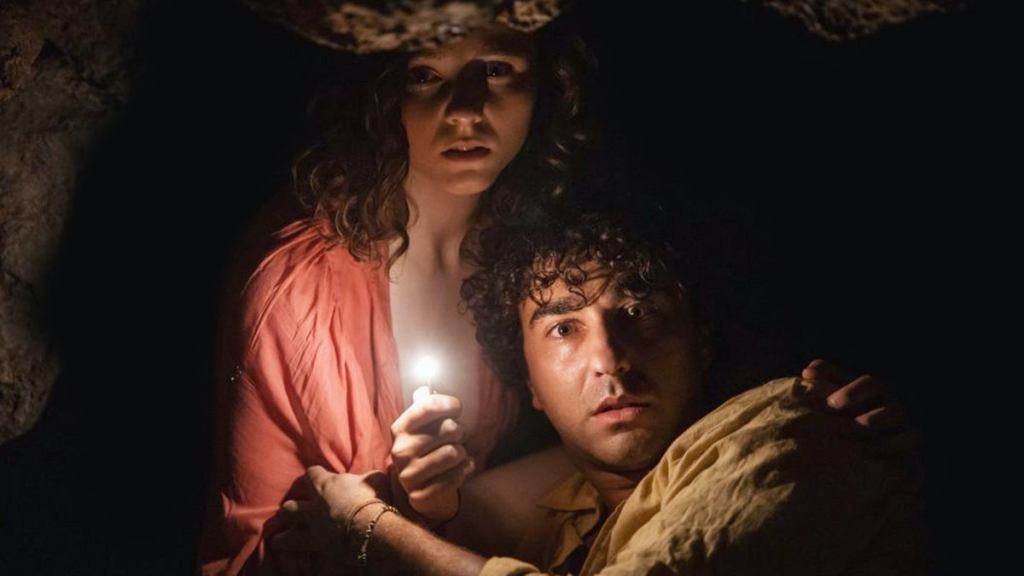
So many things are happening at once in this movie. First, there is the sci-fi horror story that primarily functions as a critique of the-ends-justify-the-means ruthless utilitarianism. But, as is typical for Shyamalan, this blunt thematic framework is the beginning rather than the end of his ambitions. For most of the movie, we have no idea what’s really going on and the wild events of the narrative play as surrealism. Once all hell starts to break loose, he doesn’t narrowly orient the movie towards its thematic goalpost, but rather dives headfirst into the prismatic range of possibilities that the situation opens up. Shyamalan never wastes anything. He puts the full weight of life into every subplot and blasts every emotion at once at full volume. I watched this twice, and it excited me even more the second time.
I am trying to be careful about spoilers but see my letterboxd review for more thoughts on this fantastic movie.
4) Memoria (Apichatpong Weerasethakul)
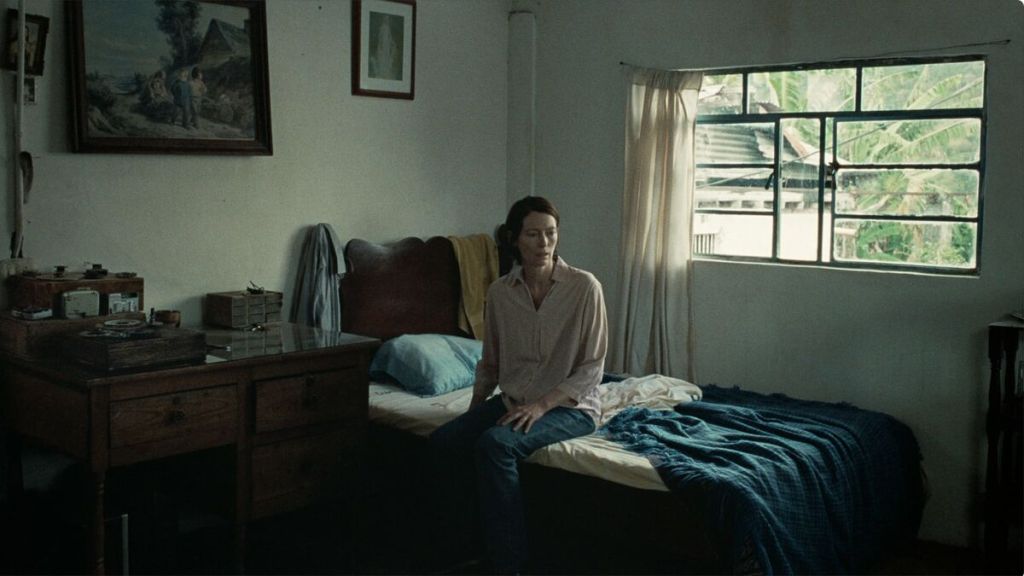
An extraordinary example of experiential cinema, inviting us to share not just in the sensory experiences of Swinton’s character, but also the liminal state of consciousness that she sinks into over the course of the film.
3) Cry Macho (Clint Eastwood)
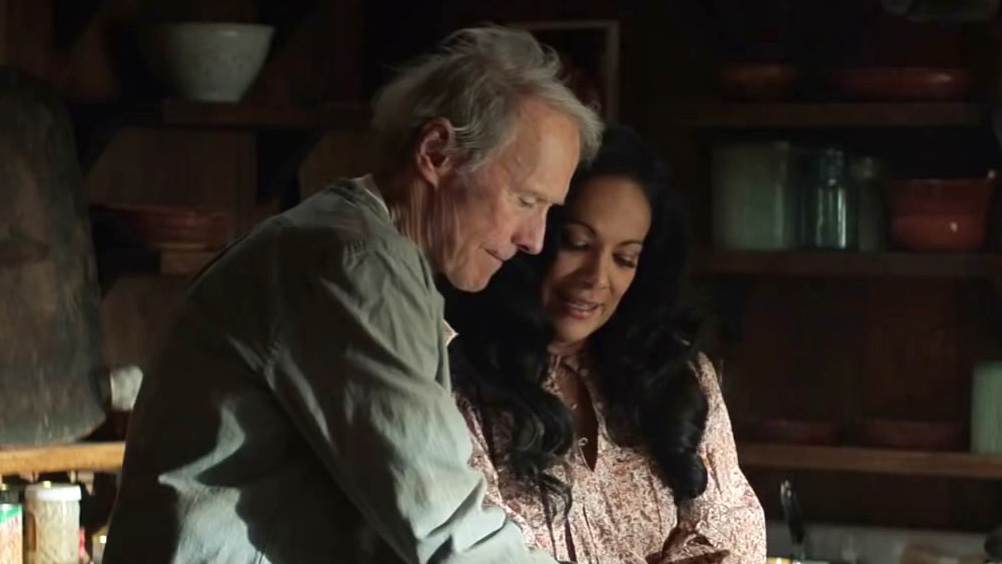
More similar to Memoria than anything else from 2021, this is another starkly unconventional study of a gringo in Latin America. It’s certainly not for everyone, but for lovers of late style in general and Clint Eastwood in particular, it’s hard to beat. It’s not so much a swan song as the epilogue to a series of swan songs. The narrative is largely tossed aside in favor of languid scenes of Clint caressing horses and slow dancing with a widow he meets along the way. The way this movie is so happy to be imperfect only adds to its shaggy beauty.
2) Siberia (Abel Ferrara)
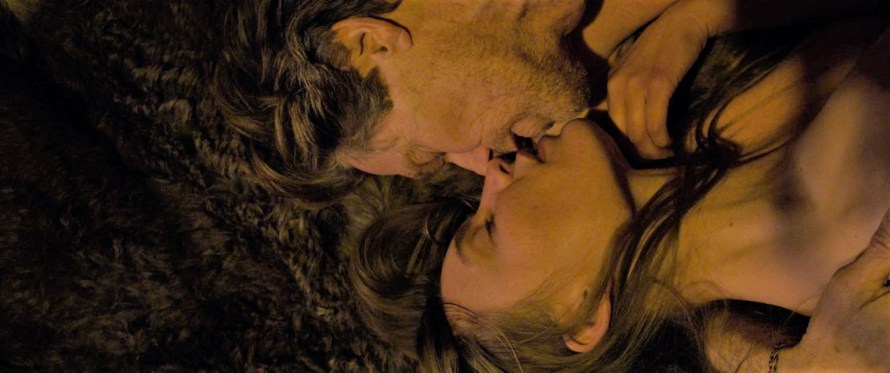
I suspect that my own life history as a recovering alcoholic with more than 14 years of sobriety gives me a different vantage point on this one. It’s a bit of an oversimplification, but I find it helpful to think of Siberia as the psychic substrate of the more literal Tommaso. Both films are best understood as not merely being about recovery, but rather as part of Ferrara’s own recovery project. When one is sober for years on end, the threat of relapse slips into the background and the more immediate struggle becomes coping with the crushing weight of all the fears, desires, and urges that one used to suppress by drinking. What Ferrara is doing in these films is not merely portraying this subject matter, but actively working through his own struggles. I can say from experience that it is very common for people to get into stuff like Jung at this stage and try to use it to make sense of their own psychic landscape, and that’s exactly what we find Ferrara doing here. I could understand the complaint that the Jung material is too on the nose, but again from my particular vantage point it’s perfect. Making a movie about his own most fucked up dreams using an explicitly Jungian framework is EXACTLY what I would expect from Abel Ferrara as he eases into long-term sobriety. The images he finds along the way are simply spectacular. Thrilling, vital cinema.
1) Titane (Julia Ducournau)
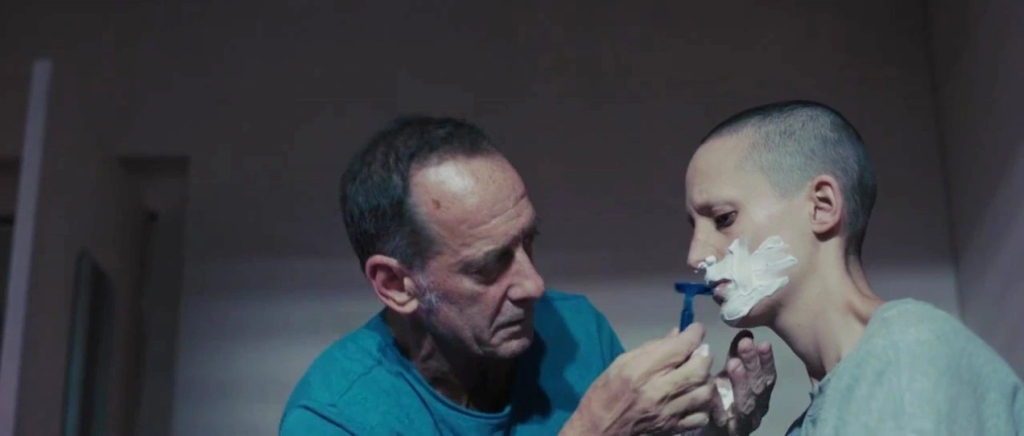
Julia Ducournau said in an interview that she put everything into Raw, and that after finishing her festival tour with that film she had the very common experience of creative block in approaching her second major work. Eventually, she explained, she stopped struggling and wrote freely from a place of unfettered rage, and Titane is the result. Many have complained about a perceived lack of thematic coherence and legibility. I have seen countless people ask: what the hell is it about? Reductive answers to this question do the film a disservice. If there’s anything that’s true of Titane, it’s that it is pitched at a level of abstraction that cannot be readily translated into some kind of message or commentary. It’s understandable that this makes us uncomfortable, especially given the thorny terrain of violence, gender, and sexuality, but the more time I spend thinking about this film the more confident I am that the best way to approach it is not to try to reconstruct it as a totalizing allegory, but rather to think about the complex, evolving ways it reacts to its own vicissitudes, and to the conventions of the serial killer and melodrama genres. It asks us to imagine Alexia’s surreal way of being, where traditional objects of affection (first parents, then lovers) are replaced by metal, engines, and automobiles. It then asks us to inhabit her sense of overwhelming rage at a world that holds open some possibilities but closes off others. The status of Alexia’s sexuality as absurd is itself a fountain of rage in the movie. She isn’t interested in people, she’s into metal and this just isn’t a path the world allows. As she navigates the consequences of her revolt, she stumbles into a loving relationship that is so utterly unconditional as to be surreal, but even this turns out to be limiting in a way that enrages her: she has to be son or lover, male or female. Even if she gets to choose her role, it’s still a role, and every possibility that it opens closes off many others. And it’s this–the qualified nature of human freedom, built into the very structure of human agency–that is the primary target of the movie’s rage. I’m still planning to write a longer piece arguing that it has at least as much in common with All that Heaven Allows as the range of movies it is more often compared to.
Other stuff I liked:
Licorice Pizza, Red Rocket, The Power of the Dog, West Side Story, No Sudden Move, Godzilla vs. Kong, Zack Snyder’s Justice League, The Many Saints of Newark, Shiva Baby, Benedetta, Wrong Turn, The Forever Purge, One Shot, Halloween Kills, In the Earth, Shock Wave 2, Me You Madness, Raging Fire, Hell Hath No Fury, Spencer, Escape Room: Tournament of Champions, Venom: Let there be Carnage, Barb & Star Go to Vista Del Mar, Resident Evil: Welcome to Racoon City, Copshop, Rifkin’s Festival.
Special bargain bin awards:
Above Suspicion, Jolt, Voyagers, Chaos Walking, Ice Road, Karen, The Woman in the Window, Zone 414.
Angela Shope
10) Dune
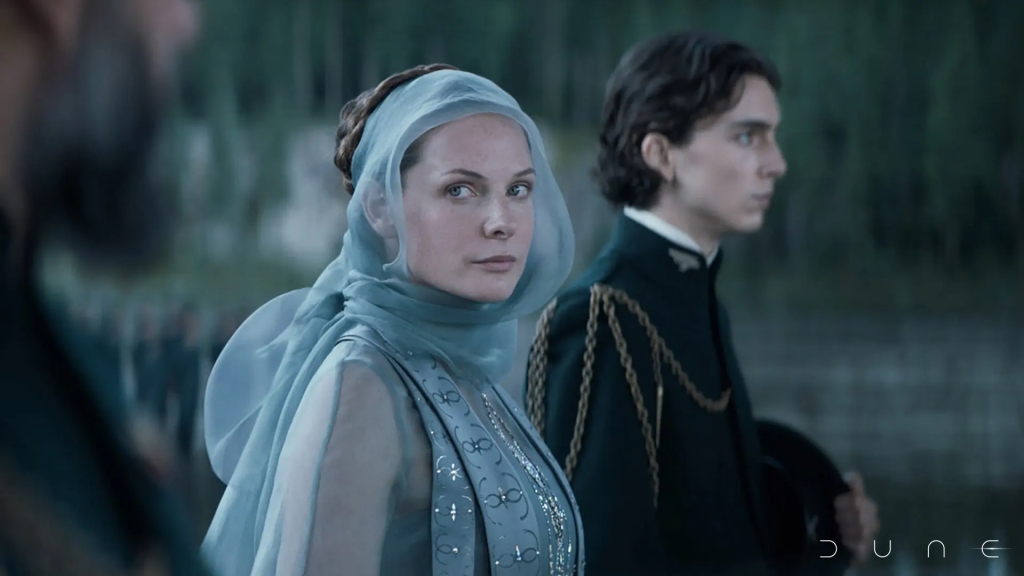
I appreciate the way this version’s dramatic focus is the relationship between Jessica and Paul. That’s a riskier direction to take the movie than it gets credit for, and I like it. I also found it visually striking. Not many big blockbusters of recent years have captivated me like this.
9) The Green Knight
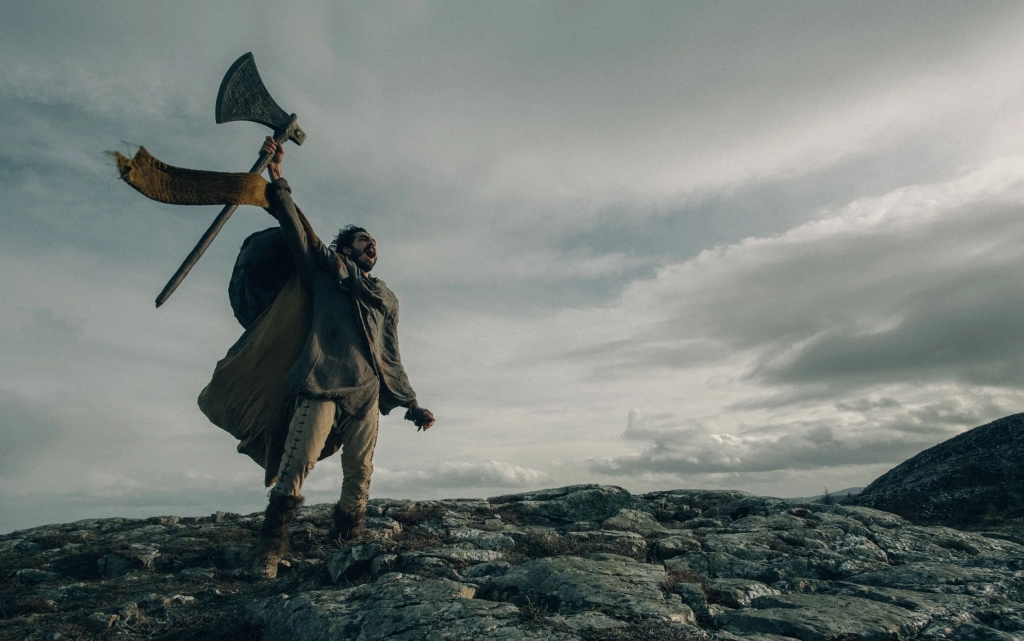
I love Arthurian lore and this scratched that itch for me. There’s a seriousness and a darkness to this movie that Matt totally rejected when we watched it together, but it really works for me.
8) House of Gucci
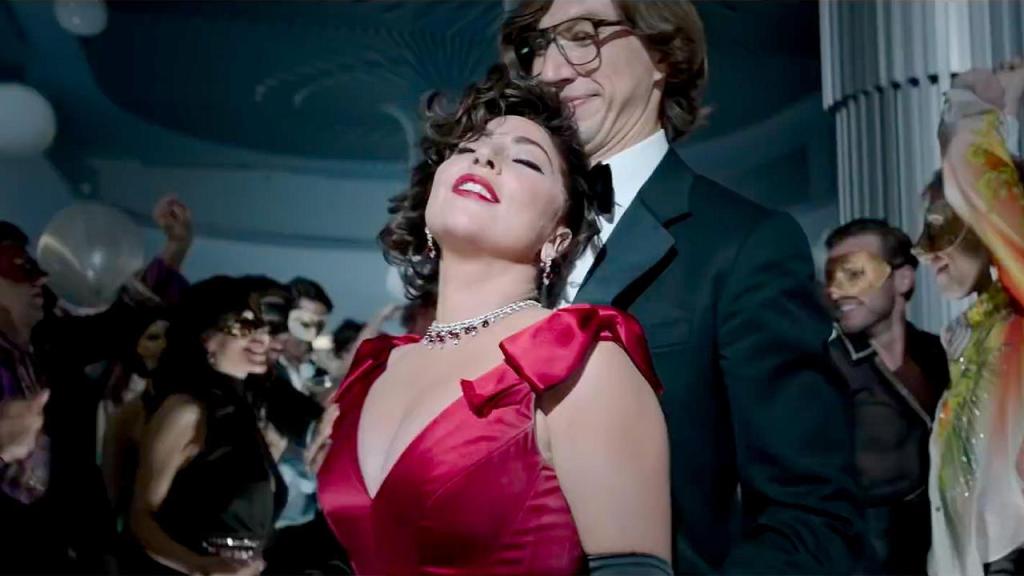
Loud, colorful, and super fun. No apologies, I love it.
7) Memoria

Mesmerizing and dreamlike. By the end I felt like I was sharing the state of mind of Swinton’s character.
6) Old
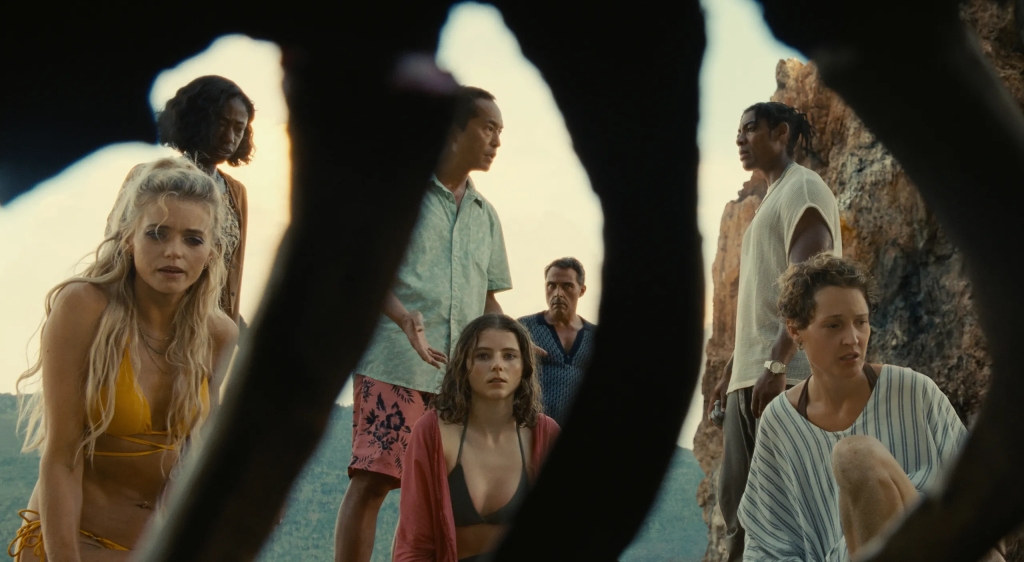
This has a fantastical quality to it, like a dark fairy tale, and I am drawn to that. It’s very moving, but it also has its wicked pleasures. The horror elements are exactly in the zone that I like: terrifying, but not disgusting.
5) Parallel Mothers

Extremely affecting. The way this movie combines melodrama and politics is something I’ve never seen done quite this way before. As usual for Almodóvar, the use of color is fantastic and wonderfully evocative of Spain.
4) Spencer
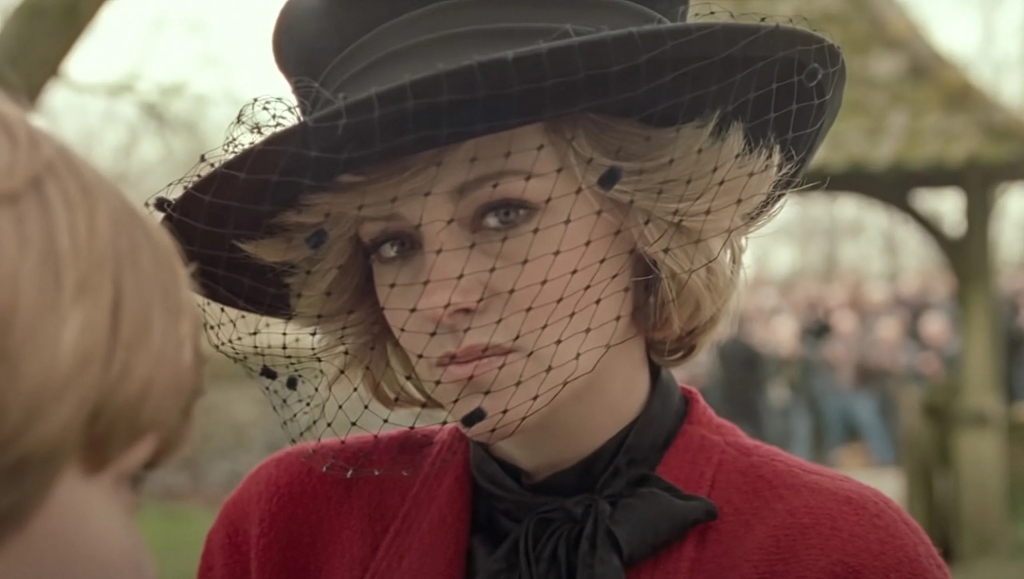
I found the depiction of anxiety and an eating disorder in the style of a horror movie to be haunting. Kristen Stewart is excellent.
3) Wrath of Man
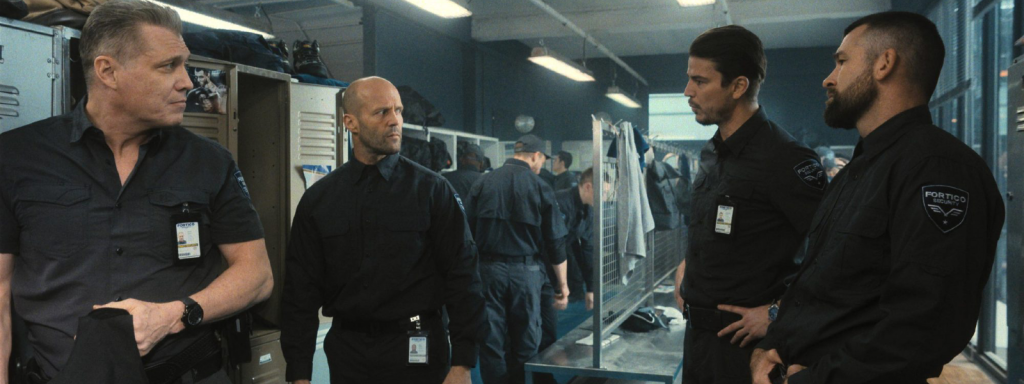
I was gripped for every second of this. The way the plot and the musical score both build to a violent eruption is extremely satisfying. Great cast.
2) France

Léa Seydoux is one of my favorite actresses, and this is her best role. Her makeup and costuming is *so amazing*, but it’s not just for show, it’s closely connected with the themes of the movie. I’m thrilled to see such a complex and ambivalent female character take center stage. The score is incredible.
1) The Last Duel
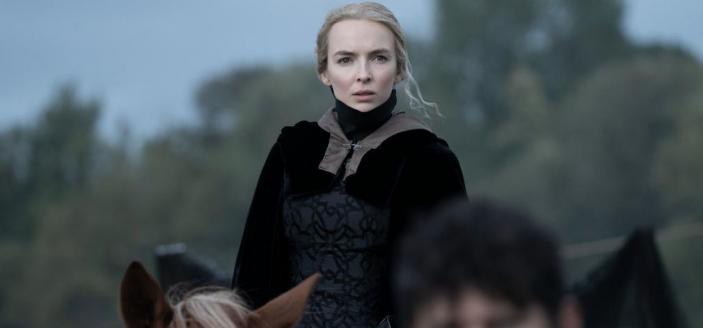
There have been a lot of explicitly feminist movies in recent years that reinforce the rallying cry of #metoo. The Last Duel is the one that most fully captures my own sense of rage as a woman. I love period pieces, and I am extremely impressed that this movie manages to simultaneously satisfy my historical craving while also so perfectly capturing the present.
Honorable mention: The Power of the Dog, Lamb, The Tragedy of Macbeth
Josh Strohl
This year Josh and Isabel have been very busy moving to Rochester and starting new jobs, but they still managed to put lists together. They didn’t have time to write commentary, but will be happy to discuss their picks on Facebook.
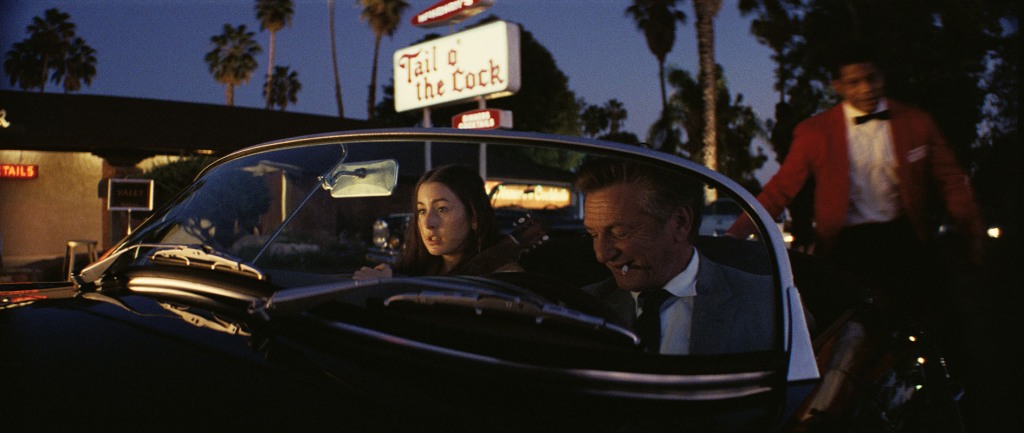
- The Last Duel (Ridley Scott)
- France (Bruno Dumont)
- Licorice Pizza (Paul Thomas Anderson)
- The French Dispatch (Wes Anderson)
- Siberia/Zeros and Ones (Abel Ferrara)
- West Side Story (Steven Spielberg)
- House of Gucci (Ridley Scott)
- Cry Macho (Clint Eastwood)
- Drive My Car (Ryusuke Hamaguchi)
- Memoria (Apichatpong Weerasethakul)
- Old (M. Night Shyamalan)
- Parallel Mothers (Pedro Almodovar)
- Zola (Janicza Bravo)
- The Beatles: Get Back (Peter Jackson)
- Wrath of Man (Guy Ritchie)
- Benedetta (Paul Verhoeven)
- Titane (Julia Ducournau)
- Wheel of Fortune and Fantasy (Ryusuke Hamaguchi)
- Zack Snyder’s Justice League (Zack Snyder)
- Swan Song (Todd Stephens)
- In the Earth (Ben Wheatley)
- Red Rocket (Sean Baker)
- Malignant (James Wan)
- Don’t Breathe 2 (Rodo Sayagues)
- The Forever Purge (Eduardo Gout)
Acting performances
- Lea Seydoux – France
- Udo Kier- Swan Song
- Ben Affleck/Jodie Comer/Matt Damon/Adam Driver -The Last Duel
- Lady Gaga/Jared Leto/Al Pacino/Jeremy Irons- House of Gucci
- Simon Rex – Red Rocket
- Alana Haim/Cooper Hoffman- Licorice Pizza
- Vincent Lindon – Titane
- Clint Eastwood – Cry Macho
- Charlotte Rampling – Benedetta
- Matt Damon – Stillwater
4K UHD Blu-ray releases
I continue to be an avid physical media collector, and these were my favorite UHD releases.
- The Ten Commandments
- The Red Shoes/Criterion 4K
- Argento on 4K
- Maniac Cop 2/Blue Underground 4K
- In the Line of Fire/Last Action Hero
- My Fair Lady
- Awaken
- Django
- Tremors
- Speed
Isabel Strohl
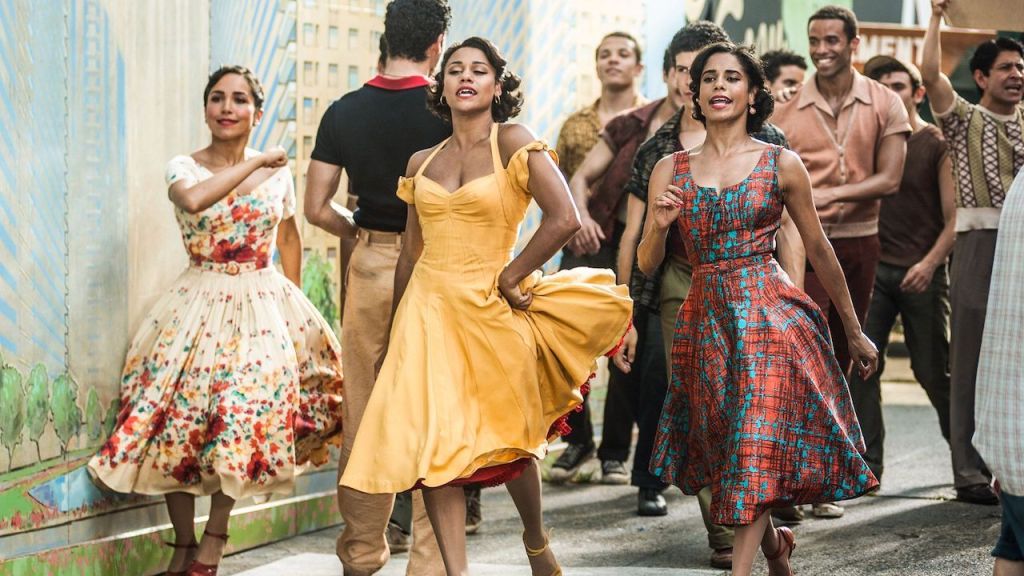
- The Last Duel
- France
- Titane
- Parallel Mothers
- West Side Story
- Malignant
- Old
- The Night House
- Zack Snyder’s Justice League
- Zola
